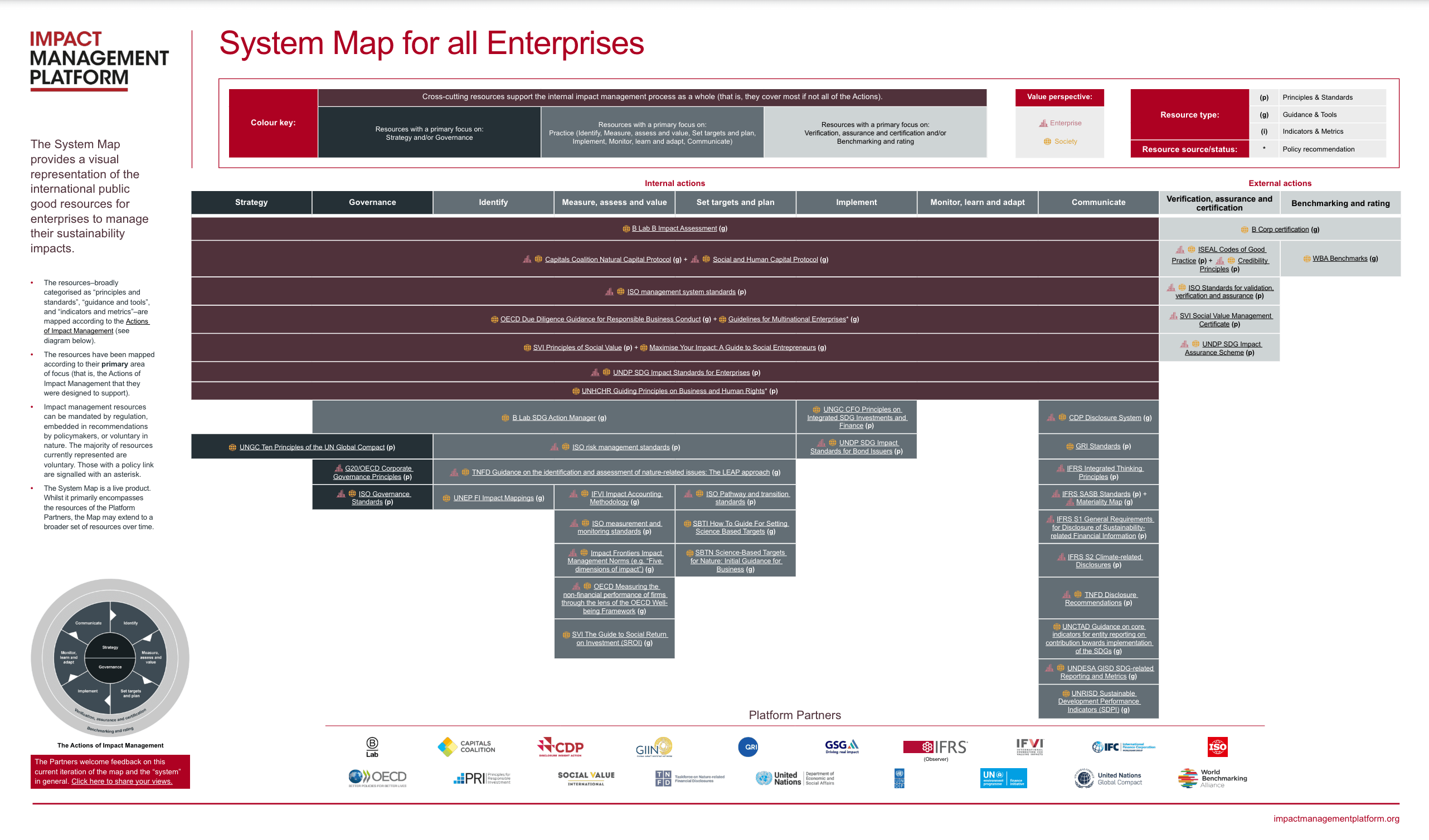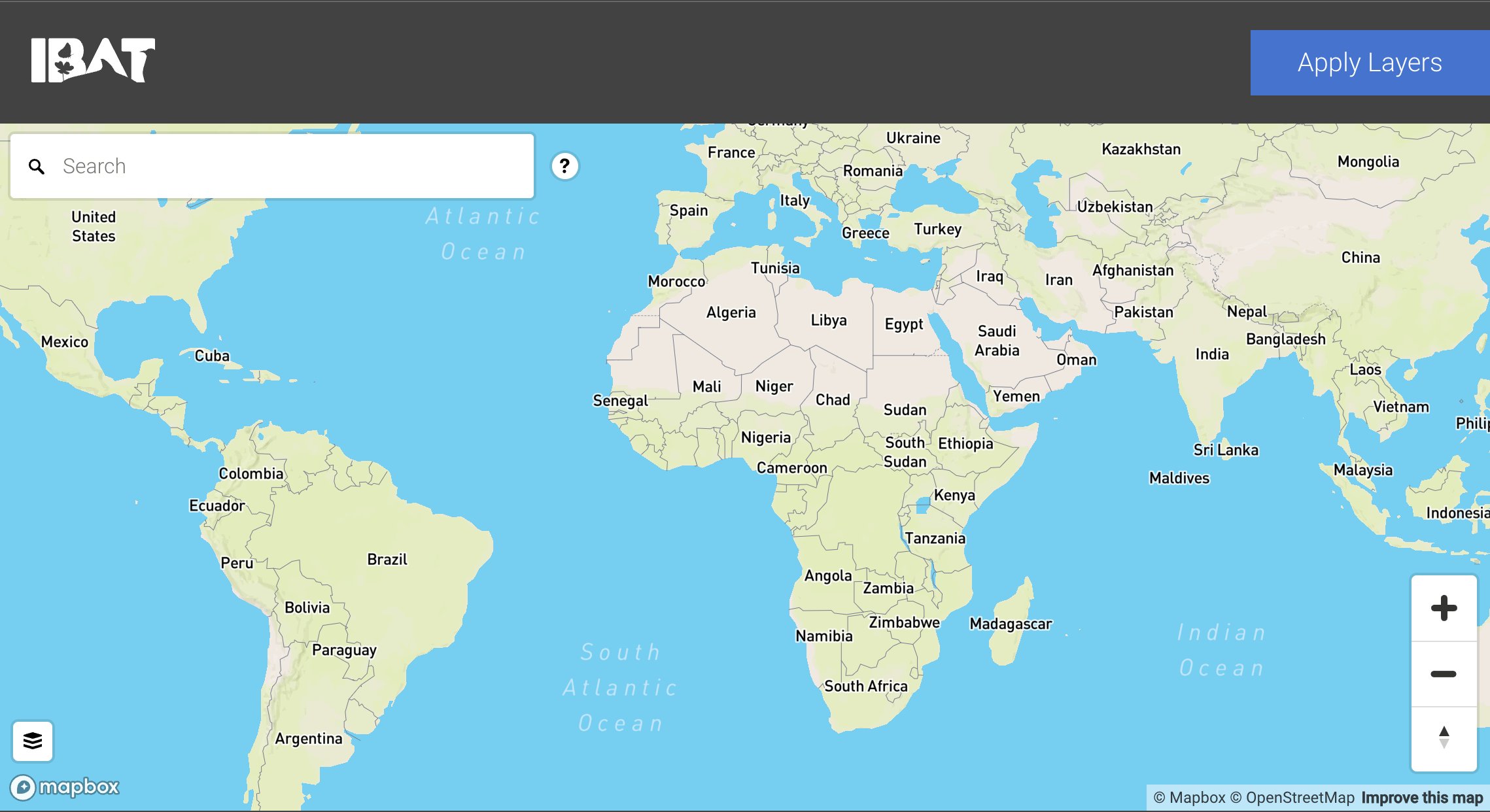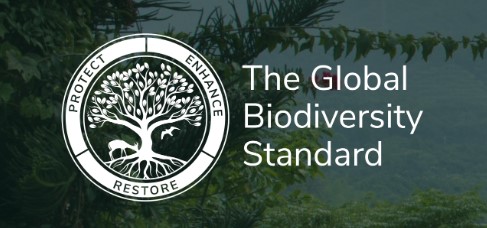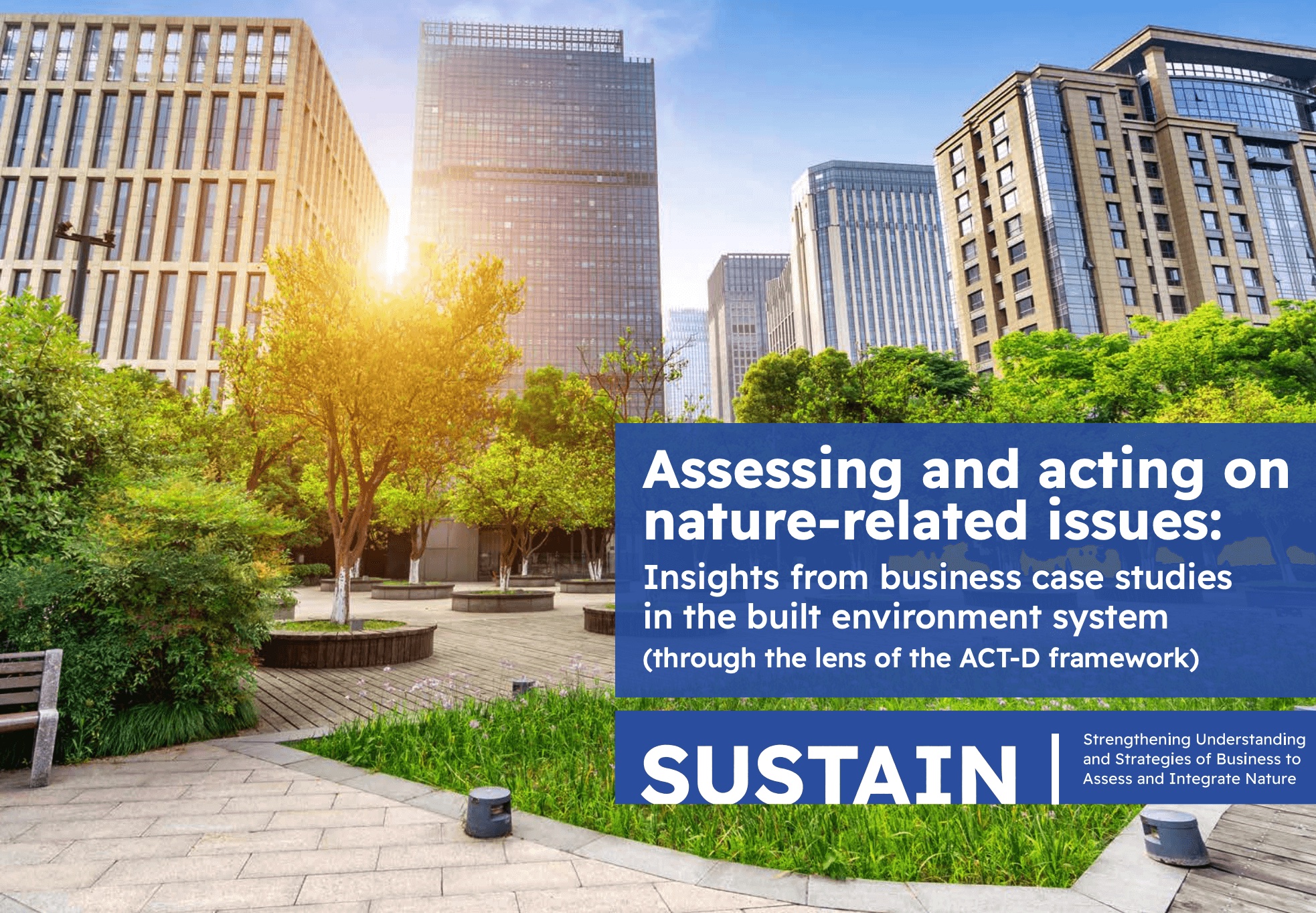Assessing and acting on nature-related issues: Insights from business case studies in the built environment system
Detalles
The European Horizon SUSTAIN project – Strengthening Understanding and Strategies of Business to Assess and Integrate Nature – which is funded by the European Union's Horizon 2020 research and innovation programme, under the grant agreement, aims to provide companies, financial institutions and agencies with the knowledge and resources needed to better understand, assess and control dependencies and impacts on the nature of the activities of the European Union. different sectors of the economy.
This document presents case studies from Sacyr, Holcim and AECOM with the technical support of Nature-based Insights, in which each one details its journey to identify and evaluate its nature-related problems and take action on them. These examples highlight the various methods and practices that can be employed to address nature-related dependencies and impacts in the built environment and are aimed at sustainability teams, civil society organisations and financial institutions involved in the built environment sector.
This publication brings together case studies of companies in the built environment system, which accompany similar documents focusing on the energy and agri-food systems. Each of these documents presents how companies are working to identify and assess nature-related issues in accordance with the High-Level Business Actions on Nature to Assess, Engage, Transform and Disclose (ACT-D), Transform and Disclose (ACT-D).
While the four steps of ACT-D are addressed, the main focus is on the initial step, "Assess," emphasizing the importance of companies systematically addressing dependencies, impacts, risks, and opportunities (DIRO). In this way, companies are more likely to develop a credible nature strategy, in line with the It's Now for Nature campaign, and will be well on its way to contributing to the Global Goal for Nature to halt and reverse nature loss by 2030 by 2020, and achieve full recovery by 2050.
Recursos relacionados

The System Map
The System Map has just received an update. It is a tool to help organizations, investors, and financial institutions manage…

Integrated Biodiversity Assessment Tool’s biodiversity map
The TNFD and the Integrated Biodiversity Assessment Tool (IBAT) have collaborated to create an integrated and publicly accessible version of…

What Is The Global Biodiversity Standard?
The Global Biodiversity Standard is the only international standard in the world that recognizes and promotes the protection, restoration, and…


